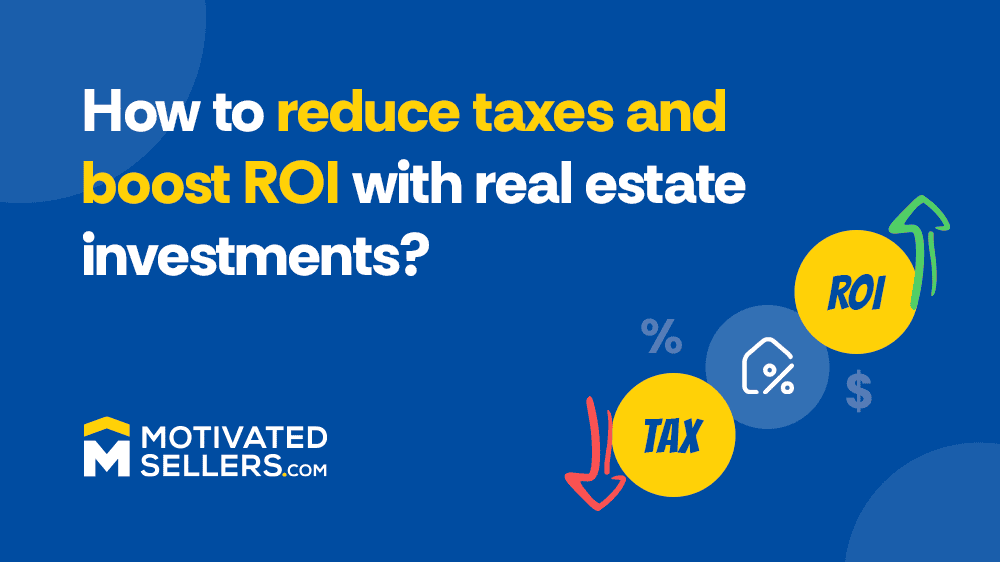

Seasoned investors know how to save money on taxes. It’s not just about owning property; it’s also about using smart strategies to cut down your spending on taxes while increasing your ROI. In this article, we’ll discuss some cool tax perks of investing in real estate. These benefits can reduce your tax burden so you can continue to grow the business.
One of the most powerful tax benefits available to real estate investors is depreciation, a non-cash deduction that allows investors to recover the cost of income-generating properties over time. The IRS considers properties to have a finite useful life, which allows investors to deduct a portion of the property’s value each year from taxable income.
If an investor purchases a residential rental property for $300,000, excluding the land value, they can deduct approximately $10,909 per year ($300,000 / 27.5) from the taxable income.
You can accelerate depreciation through cost segregation studies, which separate the property’s components (e.g., roofing and appliances) into different depreciation schedules. Under the Tax Cuts and Jobs Act, bonus depreciation allows investors to immediately write off certain improvement costs, further reducing taxable income.
If you leverage debt to grow your portfolio, then you’re eligible for this benefit. You can deduct mortgage interest payments from your taxable income.
If you have a $400,000 mortgage on a rental property at a 6% interest rate, then you’ll pay approximately $24,000 in annual interest. You can deduct the entire amount from your taxable income.
A 1031 exchange lets you defer capital gains taxes when you sell an investment property. Instead of paying taxes on the profit, you reinvest the money into a similar property. That means you can successfully invest in another property without worrying about the taxes.
A successful 1031 exchange requires you to follow specific rules. You must find a property within 45 days of selling the old one. You also need to complete the purchase within 180 days. A qualified intermediary handles the funds to ensure compliance.
Successful real estate investors continually upgrade their properties using 1031 exchanges. Their real estate portfolio can grow quickly while they don’t have to pay taxes between selling and buying those properties.
Reverse 1031 Exchange
Improvement (Build-to-Suit) Exchange
Common deductible expenses include:
The key is to have clear documentation so you can take full advantage of all available tax breaks.
Real estate investors can deduct a wide range of operating expenses to reduce their taxable income. Common deductible expenses include:
Example Calculation
If an investor generates $60,000 in annual rental income but incurs $20,000 in deductible expenses, they only pay taxes on $40,000—not the full rental income amount.
Investors who qualify for passive loss deductions can offset real estate losses against passive income. However, for most investors, passive losses cannot be used to reduce ordinary income, such as wages or business profits.
Real Estate Professional Status (REPS)
Qualifying investors can deduct rental losses without restrictions against ordinary income.
The Opportunity Zone program, created under the Tax Cuts and Jobs Act, allows investors to defer, reduce, or even eliminate capital gains taxes by reinvesting in underdeveloped or economically distressed areas.
A self-directed IRA (SDIRA) allows investors to purchase real estate within a retirement account, providing tax-deferred (traditional IRA) or tax-free (Roth IRA) growth.
All rental income and capital gains within the IRA grow tax-free or tax-deferred.
The IRS prohibits self-dealing, meaning the investor cannot personally use or manage the property.
Example
An investor buys a $200,000 rental property using an SDIRA. All rental income and future appreciation remain untaxed until distribution (traditional IRA) or forever tax-free (Roth IRA).
Choosing the right business entity can provide real estate investors with tax savings, asset protection, and liability reduction. You can form an LLC to protect personal assets from lawsuits and creditors. As an LLC owner, you can avoid corporate double taxation.
Limited Liability Company (LLC)
S-Corporation for House Flippers
Example
An investor earns $200,000 flipping houses. By operating through an S-Corp, they can classify part of the income as distributions, reducing self-employment tax liability.
Improve Your Investments:
A value-add strategy involves buying properties with potential. Search for distressed assets. Find motivated homeowners who want to sell at a discount. You can add value to a property in multiple ways by just renovating a kitchen, updating bathrooms, or creating additional living space. It’s a simple fix-and-flip strategy.
Do you know how investors save money on rental properties? The answer is effective property management. An experienced property manager will help you avoid high vacancy rates while minimizing operational expenses.
Great management means happy tenants. It translates into fewer vacancies and a steady income with minimum hurdles.
Invest in different channels in the real estate industry. Your immediate options might look like residential units or commercial property. Even in those categories, there are other options you can choose.
A residential property might involve a condo, a single-family, or an apartment. You can consider investing in different neighborhoods. A commercial property can be an office building or a retail space. You can also invest through Real Estate Investment Trusts (REITs). REITs are companies that own or finance income-producing real estate. An REIT allows you to invest in various real estate projects or properties without buying them directly.
Smart tax planning helps you keep track of your finances. Here are some tips from experienced investors who have been in your shoes before.
Tax laws are complicated. That’s why it pays to get help from a tax expert who knows the real estate industry. You can receive advice specific to your situation. An experienced advisor can help you find your deductions and help you avoid potential mistakes.
Tax laws can change, and new laws can affect your investment. The best way to keep up with these changes is to consult your tax advisor and stay informed about the upcoming regulations.
Accurate Record Keeping
Tax benefits in the real estate sector are never immediate. You must keep track of all income, expenses, and depreciation. A water boiler replaced today can be used to deduct taxes years later. You can use software to help organize data. Accurate records also make tax time easier. Good record-keeping supports your deductions even if you’re questioned by the IRS.